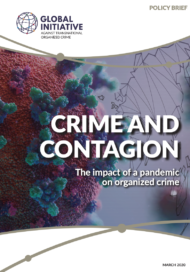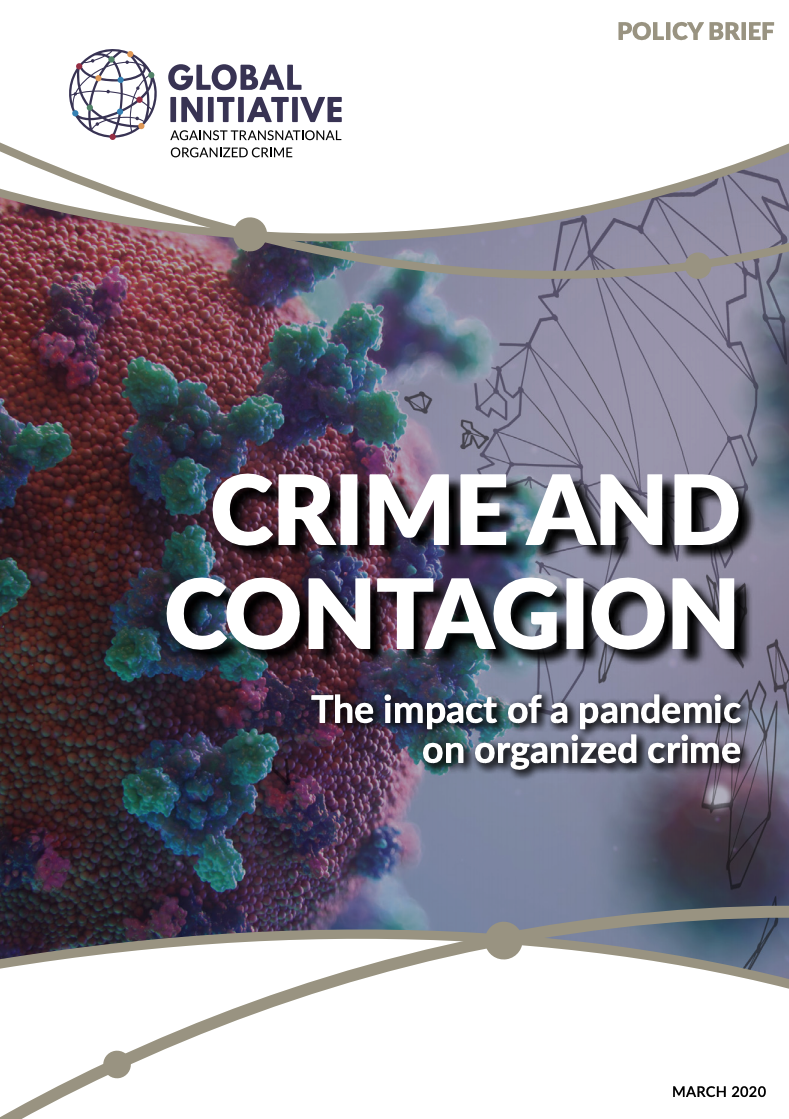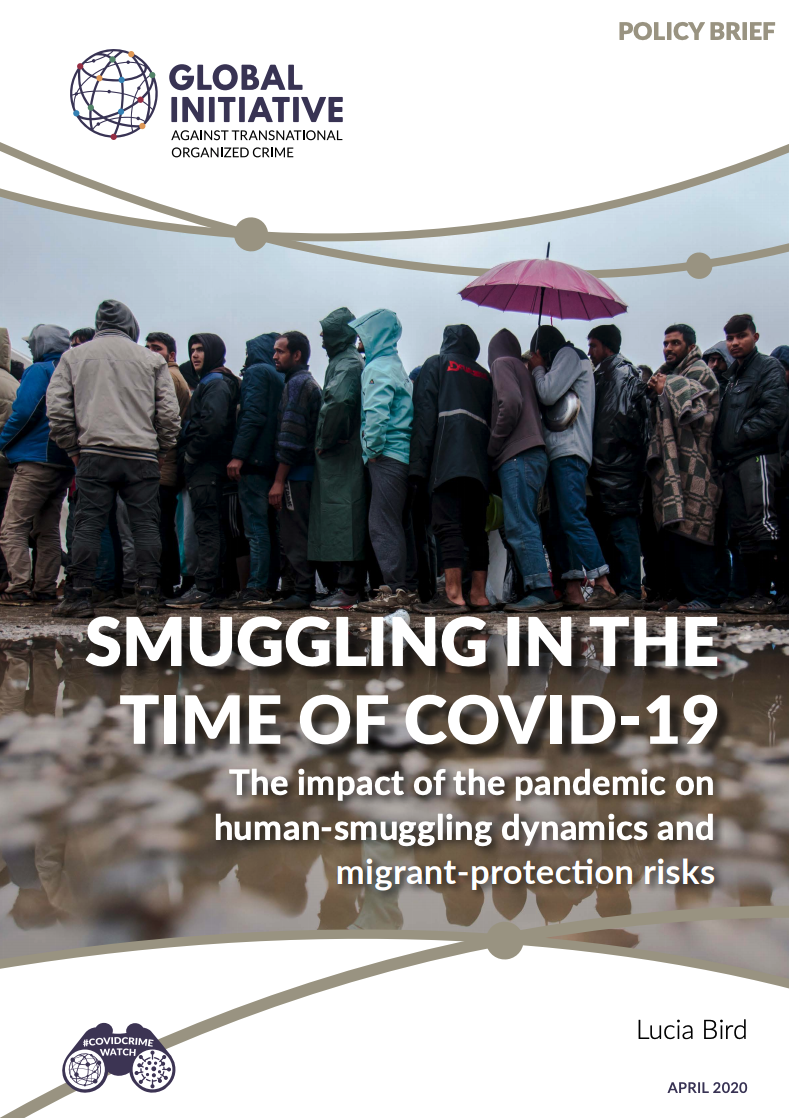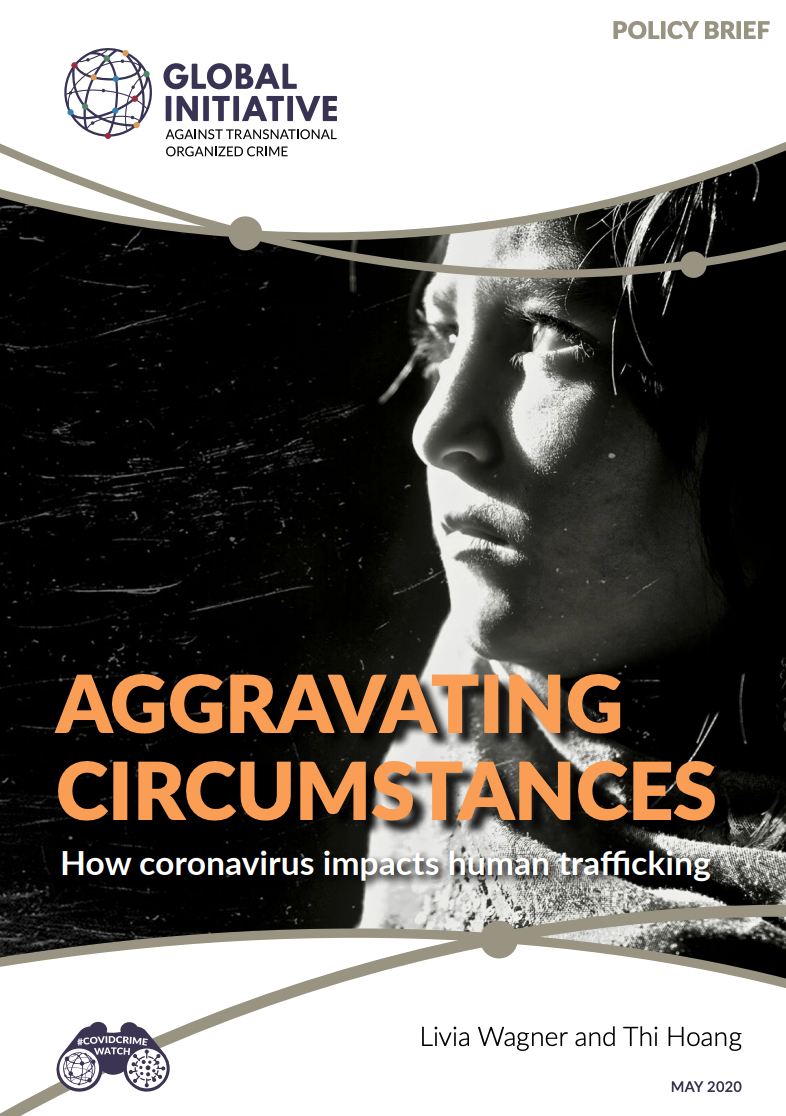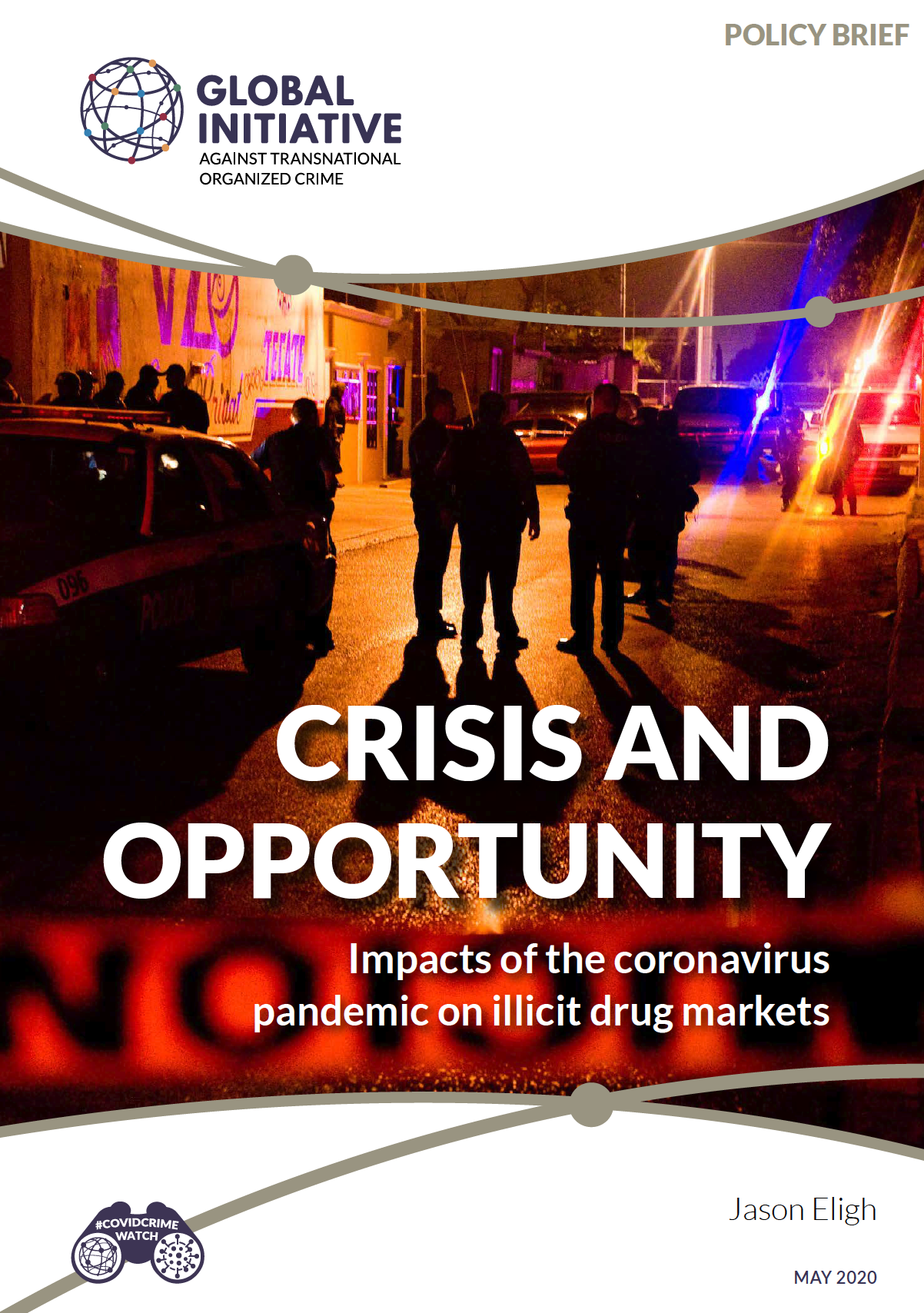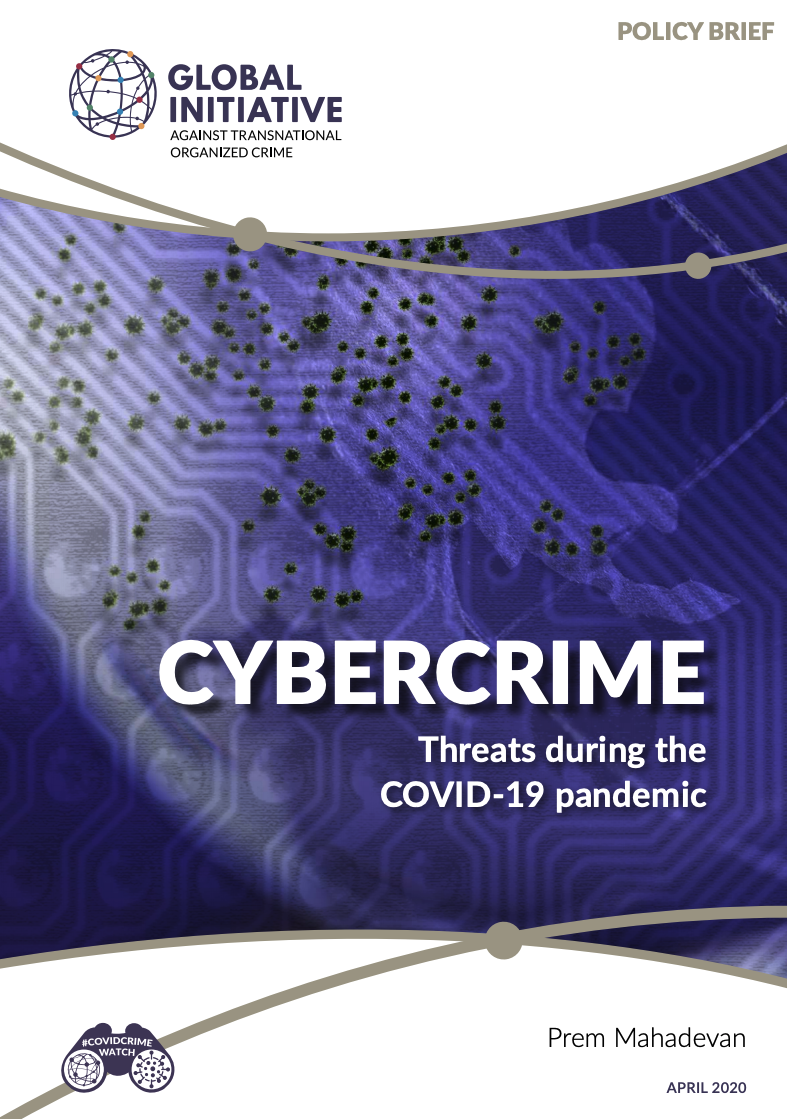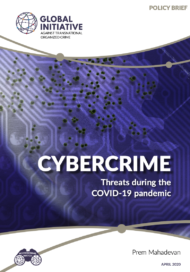Posted on 26 Mar 2020
Intro
The COVID-19 pandemic has profoundly affected society and the formal economy, and it will continue to influence and shape organized crime and illicit markets.
The institutional response to the pandemic and the subsequent reshaping of socio-economic norms worldwide will affect not only how criminal networks operate, but also the nature of law-enforcement efforts to counter these networks.
As the pandemic spread across the globe and countries went into lockdown worldwide, the Global Initiative Against Transnational Organized Crime (GI-TOC) has worked to understand these impacts as they emerge. This analysis has been captured in a series of reports and updates.
Here is a guide to all of the GI-TOC’s research on COVID-19 and transnational organized crime. Our series of #CovidCrimeWatch newsletters can be accessed here.
How has COVID-19 affected organized crime?
The pandemic created obstacles for certain organized-criminal activities, while simultaneously providing opportunities for others. These changes could have long-term consequences.
The realignment of state resources – and particularly with regard to police services – will significantly influence how state responses as well as criminal groups evolve. The heavy-handed law-enforcement response seen in many places may have diminished citizens’ trust in these institutions, which would be detrimental to the fight against organized crime.
Who will be worst affected by the impact of the pandemic on organized crime?
Vulnerable groups, including migrants, refugees and the victims of human traffickers, are likely to be adversely affected. People who use drugs may be particularly hard hit.
The GI-TOC policy brief, ‘Crime and contagion: The impact of a pandemic on organized crime’ drew on information garnered from our networks and civil-society partners in the field. This brief provides a comprehensive review of the impact of the coronavirus on a wide spectrum of criminal groups and illicit markets.
Disclaimer: An earlier version of this report stated that INTERPOL’s Operation Pangea, conducted in March 2020, resulted in a greater number of seizures of counterfeit medicines than previous similar operations. This has now been clarified to specify that seizures were higher for certain classes of medical products, such as anti-virals, which can be linked to the COVID-19 pandemic. In addition, a statistic that was cited suggesting Mexico’s homicide rate had significantly reduced following the introduction of social-distancing measures has been removed due to an error.
The GI-TOC report titled ‘Smuggling in the time of COVID-19’ showed that it is vital to monitor the impact of COVID-19 on migrants and refugees. This is necessary not only to prevent a dramatically more severe migrant crisis after the pandemic, but also to mitigate a more lucrative and professionalized smuggling market.
Poverty, a lack of social or economic opportunity, and limited labour protection are the root causes and drivers that render people vulnerable to human trafficking. The pandemic has triggered an unprecedented crisis, which will likely exacerbate all of those factors and result in developments that require careful examination by anti-human-trafficking communities and stakeholders.
COVID-19 and drug markets
The impact of coronavirus on organized criminal activity cannot yet be fully understood. This is especially true for drug markets, which are among the most complex of all illicit activities and are highly driven by local contexts. However, drawing on our research, the GI-TOC has produced a snapshot of how drug markets have been affected, and a policy brief that explores this topic in greater detail.
How will the pandemic affect wildlife trafficking and environmental crime?
The GI-TOC has produced multiple analyses of the impact of COVID-19 pandemic on wildlife tracking and environmental crime: from a review of what’s happened to China’s wildlife trade policy since the outbreak of coronavirus, to the lessons learned from China’s response.
John M Sellar suggests COVID-19 should prompt a radical rethink of efforts to curb wildlife trafficking, while Jacqueline Cochrane takes a closer look at the impact on efforts to combat wildlife crime in southern Africa. Shirleen Chin and Yovana Murillo consider the wider links between the pandemic and environmental governance and sustainability, and investigate whether environmental crime has changed during the COVID-19 crisis.
COVID-19, cybercrime and cybersecurity
Hackers have sent out even more phishing messages during the COVID-19 crisis, says the GI-TOC report, ‘Cybercrime: Threats during the COVID-19 pandemic’, which also looks at the vulnerability of healthcare systems to cyber attacks.
Coronavirus, extortion and the illicit economy
In Latin America, the pandemic has brought about gang-imposed curfews, affected extortion practices and made some groups even more vulnerable illicit actors and activities. A network of experts explores how COVID-19 has been affecting the extortion economy in Central America.
Organized-crime networks and community responses
In our ‘Parallel contagion’ series, four leading figures in Italy’s fight against the mafia discuss how these criminal groups have been repositioning themselves in response to the pandemic. Evidence suggests, for example, that the pandemic has enabled the mafia to cause a crisis in the country’s prisons.
The GI-TOC has also examined how restrictions placed on movement and the economy have allowed criminal activity to flourish, and how criminal actors adapt as lockdown measures ease. We also take a closer look at scenarios where organized-crime groups have delivered aid packages and held public-health workshops about COVID-19.
Criminal groups operating in fragile states such as Syria, Yemen and Libya have also adjusted to the pandemic to suit their best interests.
From engaging with communities at a local level in places where criminal governance is high, GI-TOC research also suggests that the virus presents an opportunity to roll back criminal governance.
The international response to COVID-19 and organized crime
The United Nations Crime Congress, which was due to take place in March, was postponed in the wake of the pandemic. In a policy brief titled ‘Detour on the road to Kyoto’, the GI-TOC considers how the congress can be made relevant to a post-COVID-19 world.
During the pandemic, we have tracked various national responses to the impact of COVID-19 on organized crime, from the Western Balkans and Pakistan to the Korean Peninsula and Italy. We also looked at state responses, including in relation to corruption, criminal-justice systems and the deployment of the military and police.
The GI-TOC has been collecting news articles on the interplay between COVID-19 and organized crime since March. We have gathered these articles in a media repository that contains over 500 items. The repository has been made public as a resource for everyone to use, and can be downloaded below.
